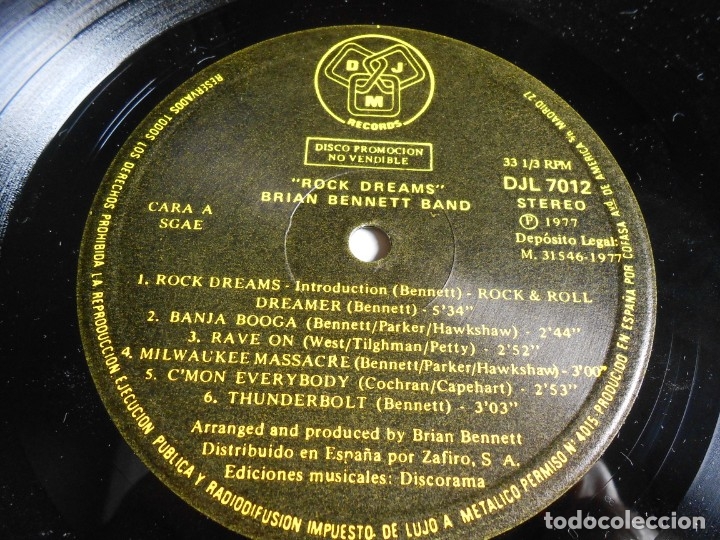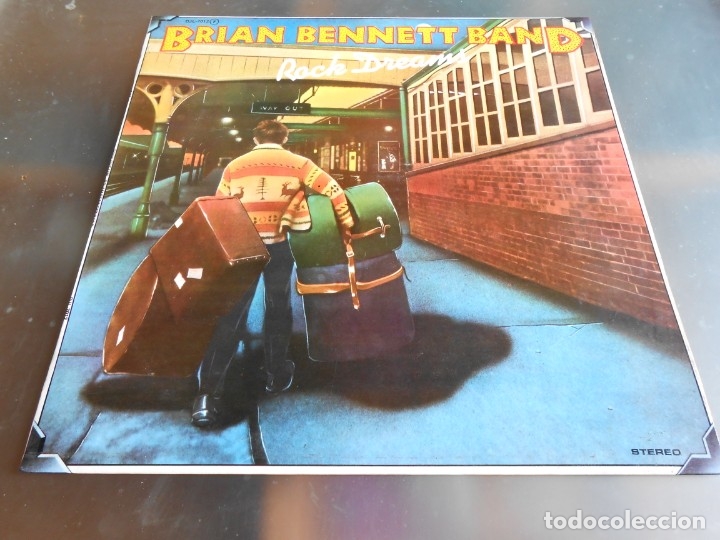

Despite these outré edges Brian keeps one eye on the dancefloor most of the time, slipping smoothly into bass-led big beats after the somewhat challenging introduction. Which I suppose isn’t surprising given Brian’s library music background, though both a firm disco rhythm and cool synth sound gain prominence to render the tune a bit of a dance corker.Īn electronic thud heralds Pendulum Force – some of the music here isn’t really that far away from the experimental post punk dabbling of the same time frame, despite being conceived by someone who was definitely not part of the new wave. The next track Chain Reaction then segues in obliquely with synth spirals, echoes and drum flourishes, giving the effect of almost being musique concrète.

This one is in a mid-paced jazz/funk mode, more chilled and reflective, with a solid bass anchoring things.

Solstice follows on with carefully applied, beautiful keyboards. But going by the sound Brian and band had arrived at, the idea was quite plausible. A theme tune to an unmade Sci-Fi programme about disco-obsessed Martians? It wasn’t of course. Then the music shifts into a powerful and percussive funk groove, with an assertive but measured bassline that could have come from Jah Wobble himself. Air, Daft Punk et al – our Brian was there decades beforehand! The album begins with the title track, with it leisurely gathering steam in an introduction which consists of slowly emerging drones, thumping percussion sounds and electro twitters. Voyage’s instrumental mix of space, electronics and solid boogie rhythms is as strange and danceable as one could wish for without actually boarding George Clinton’s Mothership. These two strands came together in a decidedly funky fashion on the six lengthy offerings that make up Voyage, which Brian completed with the excellent accompaniment of Alan Jones on bass and synth player Francis Monkman.Įxactly how and why British session musicians of the 1970s took to the funk sound so well is is a bit of a mystery, but it happened. Playing off the space age sound one could get out of this new piece of electronic kit, the theme mutated from terrestrial travel to journeys into the outer reaches cosmos, tapping into the then-current vogue for science fiction blockbuster films (Star Wars came out the year before Voyage’s release). He initially hit on the notion of using a heavily orchestrated style, but then decided instead to use the musicians’ new toy of choice in the late 70s, the synthesiser. His first offering for the label was 1977’s Rock Dreams, a concept piece based around the book of the same name.įor his next solo venture Brian began composing instrumental pieces inspired by the subject of travel. Even so they still had sufficient means to offer Brian a two album deal. But by 1976 John left and without the benefit of his record sales, DJM was pretty much in the doldrums. Their big star was Elton John, who had been on the roster since his debut album Empty Sky in 1969.
#BRIAN BENNETT BAND ROCK DREAMS RARE TV#
Added to this extracurricular activity he also became a session player, composing and playing on many well-known TV theme tunes and incidental music.īy 1978 Bennett was signed to the DJM label as a solo artist, the imprint set up by Dick James over a decade beforehand. He initially concentrated on jazz recordings, beginning with the Change of Direction debut album in 1967. You might have thought that the work with Cliff and The Shadows would have kept Brian busy, but towards the end of the 1960s he decided to launch a solo career. His percussion skills were noted and Brian then hooked up with the backing outfits of Tommy Steele and Marty Wilde, but in 1961 he joined almost certainly the biggest act in the land at the time, The Shadows, replacing their original drummer Tony Meehan.

There he played in a band which backed many of the aspiring rockers of the time. The young man showed definite promise and netted a gig behind the traps at the Old Compton Street HQ of British rock & roll, the 2i’s Coffee Bar. He began in the same way as many teenagers of the time, first performing as part of a Ramsgate skiffle outfit. Ian Canty samples the delights of extra-terrestrial dance music…ĭrummer/Composer Brian Bennett has a packed and rich musical history that reaches right back to the very dawn of British pop. This set comes with a bonus disc which includes single edits and previously unissued working mixes of the album tracks. 2CD reissue of Shadows drummer Brian Bennett’s 1978 solo album which was described on the sleeve as “A journey into discoid funk”.


 0 kommentar(er)
0 kommentar(er)
